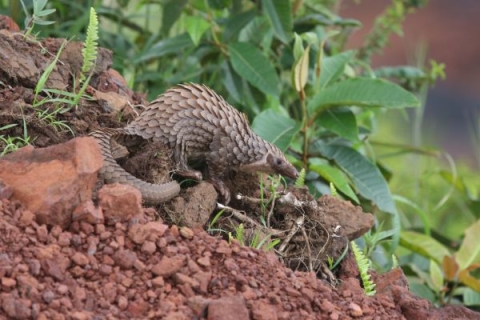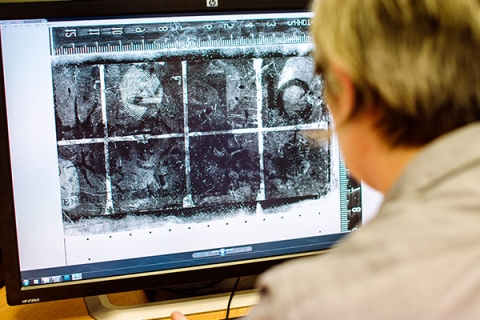We are delighted that no less than 73.1% of our research outputs were judged to be world-leading or internationally excellent. In addition, an impressive 75% of our impact was rated as having very considerable or outstanding reach and significance. According to Times Higher Education, we are in the top 10 modern universities for our research outputs, our research impact and our research environment. These superb results reinforce the status of the University of Portsmouth as an internationally excellent centre for research in social work and social policy.
Our research on crime, law enforcement, social policy, and education has empowered criminal justice professionals and has been utilised to support society’s most vulnerable people. Our results confirm this upward trajectory, in terms of scholarly outputs and they also highlight the positive difference that our research is making to people’s lives.
The unit has seen significant growth with 38 colleagues submitted, up from 24 in 2014. We have also addressed the gender balance, with 53% of those submitted being women, up from 47% in 2014. Our research funding income has increased by over 30%, in particular from prestigious research councils. The number of doctoral completions has rocketed from 26 to 91, a 350% increase. This highlights our outstanding contribution to the scholarship in Social Work and Social Policy.
In addition, the Unit of Assessment has broken into exciting new areas. Specific successes have been achieved in cybercrime, through the establishment of the Cybercrime Awareness Clinic and our continued expansion of the award-winning Forensic Innovation Centre. The unit was one of the first in the country to specialise in Fraud and Economic crime and our work has been expanded even further, just as fraud becomes the most frequently reported and recorded crime in the UK. Moreover, our unit remains committed to research that promotes a better understanding of equality and diversity issues and has shown remarkable success in its research on disability, sexuality, and victims of sexual violence. The Unit of Assessment also focuses on global wildlife crime with specific successes achieved in using forensic techniques to protect the endangered pangolin species from trafficking in Asia and Africa, highlighting our role in research to support biodiversity and environmental sustainability.
Results in REF 2021
- 73% of our research outputs were judged to be internationally excellent or world-leading.
- 75% of our impact was rated as having very considerable or outstanding reach and significance.
- 100% of our research environment was judged as having the vitality and sustainability to produce internationally excellent or world-leading research.
Research areas
Our research takes place across the four research groups listed below.
In addition, our researchers are working on Policing, Cybercrime, Prisons Probation and Penology, and Victimology and Ecological Justice.
Counter Fraud and Economic Crime
We investigate the challenges caused by fraud and other forms of economic crime. Our research has highlighted many forms of harm from fraud beyond financial, including reputational and psychological harms. Research and innovation funding successes include EPSRC, Home Office, Department for International Development, Nuffield Foundation, City of London Police and several private companies.
Forensic Interviewing
We engage in pure and applied research in the area of forensic interviewing. A key focus is on trauma-informed interviewing in relation to sex offences and terrorism, including innovative and impactful work on interviewing during the investigation of mass terrorist attacks.
Missing Persons
This research centre brings together academics, charities and police agencies to further our understanding of the circumstances, risks and outcomes surrounding missing people. The Centre has attracted research and innovation funding from agencies including the European Commission, the National Police Chiefs’ Council, and numerous UK police forces and charities.
Forensics
Our experts are currently engaged in ground-breaking research on gunshot residue, fingerprints, forensic entomology, and are developing forensic techniques to disrupt wildlife crime.
Impact case studies
We submitted four impact case studies demonstrating the reach and significance of our research in the following areas:

Using forensic science to empower the fight against pangolin extinction
Ground breaking research undertaken by our Forensic Innovation Centre (FIC) has led to the development of the first forensic evidence recovery technique for pangolin scales. Pangolins, anteater type mammals, are poached for their scales. This has placed them at risk of extinction. Wildlife crime rangers now use this technique in the wild, enhancing efforts to disrupt this illegal trade. The methods are now distributed worldwide through partner agencies, including the Zoological Society London, Border Force UK, Interpol and the Wildlife Conservation Society.

Countering fraud more effectively by better understanding its harm, cost and extent
Research by leading counter fraud experts at the University of Portsmouth has transformed our understanding of the harm fraud causes to victims. This has created new methods of assessing that harm, and strategies to reduce it. Fraud losses could be as high as 6.4% of global GDP, a staggering £4.7 trillion, while for the UK this figure is estimated at £137 billion. Our research has also led to changes in sentencing; changes in the measurement of fraud and importantly, a deeper and more empathetic understanding of victims of romance scams and other types of targeted fraudulent behaviour.

Enhancing and professionalising training for new police recruits and police tutor constables
Our research has led to the transformation of policy and practice around a crucial area of police training for all new police recruits in England and Wales. The vital role of the recruit's tutor and the value placed upon informal learning have been recognised in changes to both local and national approaches to the training and development of both the recruit and their tutor. This impact has further extended internationally, to the development of new standards for police tutoring across five Nordic countries.

Managing traumatised witnesses of terror: Developing a therapeutic jurisprudence framework
Research from the Centre of Forensic Interviewing on best practice in dealing with traumatised interviewees was used directly in the aftermath of recent terror attacks. Our research has demonstrated the vital importance of careful triage of victims and witnesses using appropriate interview techniques. This research now forms the basis of the Witness Interview Strategy for Critical Incidents (WISCI), a framework for policy and practice adopted by UK police nationally, and by international partner organisations.
Collaborations and partnerships
Our strategic ambitions have been realised through our many channels of collaborative work, particularly our Forensic Innovation Centre (FIC). The FIC is a collaborative, purpose-designed forensic laboratory developed in conjunction with Hampshire Constabulary. It's the first operational police forensic unit to be based on a University campus. Representatives from both organisations work together to design and implement research for an applied need, based on a discernible gap in forensic knowledge or practice.
This unique collaboration has received prestigious external recognition. The FIC won a Times Higher Education Award for Outstanding Employer Engagement in 2015 and it has been cited as an example of successful, mutually-beneficial collaboration and good practice in the 2016 Home Office Forensic Strategy. The partnership has generated nearly £1 million in research and innovation income over five years, and researchers work in collaboration with the Forensic Capability Network, the National Police Chiefs’ Council and the Home Office on collaborative research.
